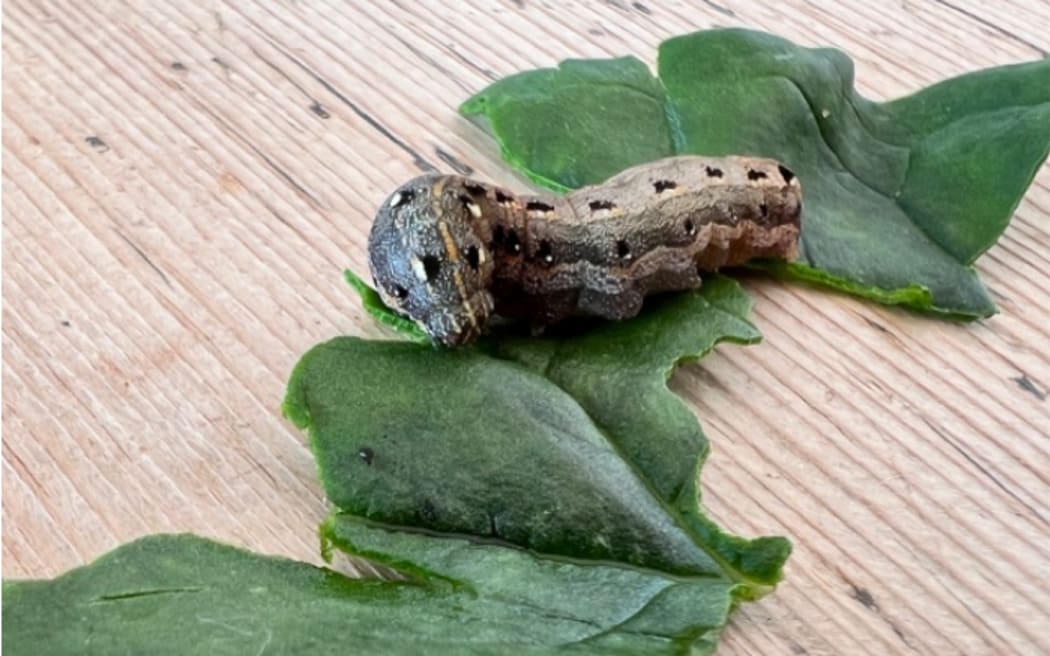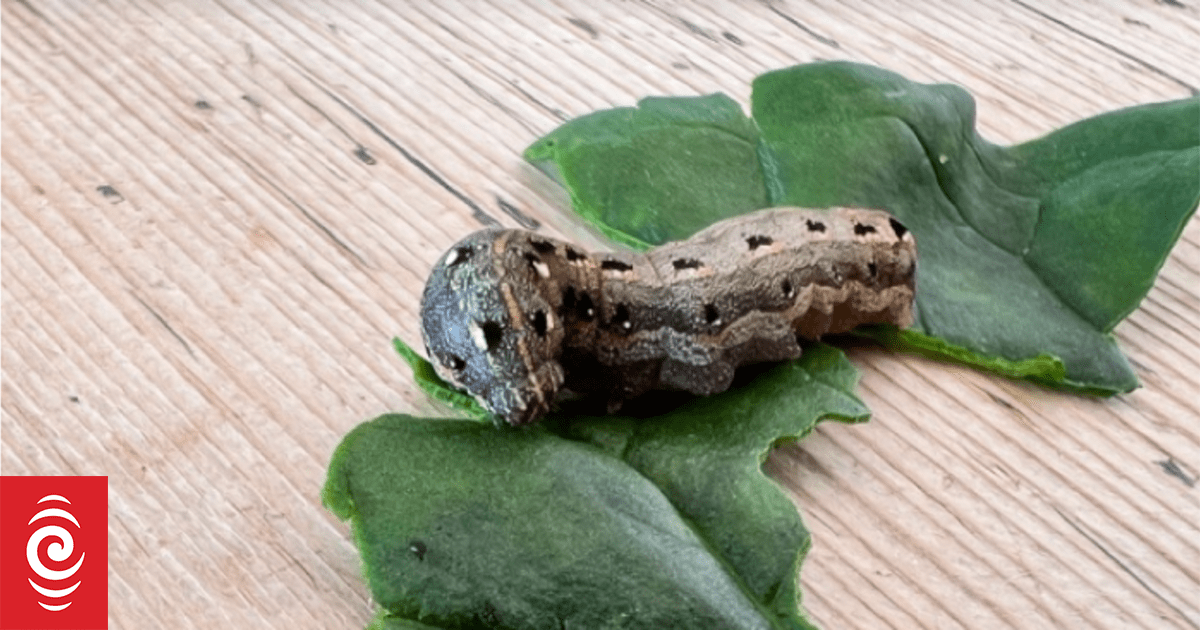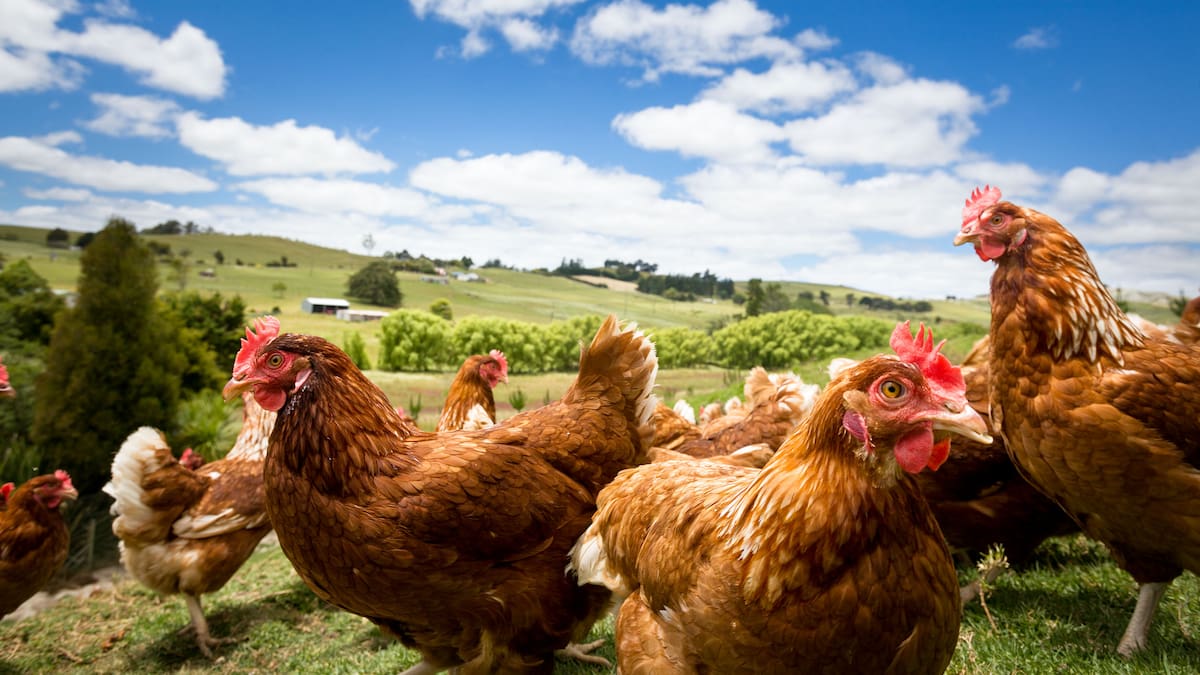
A fall armyworm.
Photo: Foundation for Arabale Research
A co-ordinated effort is underway to control a highly invasive moth that causes devastation to maize, sweetcorn and other crops.
Ashley Mills from the Foundation for Arable Research told Afternoons that the fall armyworm was first discovered in Northland, early last year and is thought to have reached our shores from Australia.
It originated in the Americas before travelling around the world, helped by prevailing winds.
“With each generation, then a moth flight, it can move a little bit further and a little bit further… up to a couple of hundred kilometres in one flight.”
Its presence in Northland as an unwanted organism was confirmed in March 2022.
Mills said the fall armyworm eats around 350 different plant species, but prefers crops like maize, sweetcorn, rice, sorghum and sugar cane.
The initial response, in partnership with industry including Vegetables NZ and the Ministry for Primary Industries, was to understand if it could be eradicated.
Research showed it was able to survive the winter climate in Northland so could not be eradicated, but there was the potential for it to die out during a significantly cold winter spell.
“We are just starting to find those first populations, so we are at the point where we know in localised pockets in Northland, it has overwintered.”
Mills said the invasive species worked by building up its generations through the growing season, with its biggest population in Autumn, when very small and young crops were most at risk of being decimated by a big infestation.
While it was warm enough in Northland for the first generation early in the growing season, he said subsequent generations would have limited spread further south as crops matured and temperatures began to fall.
“Late crops that are very, very young, together with large populations of fall armyworms – that’s when you are looking at the highest threat.”
There have been five confirmed reports of the invasive moth, so far this growing season.
Farmers were being advised to inspect their crops for fall armyworm damage in order to prevent its spread.



